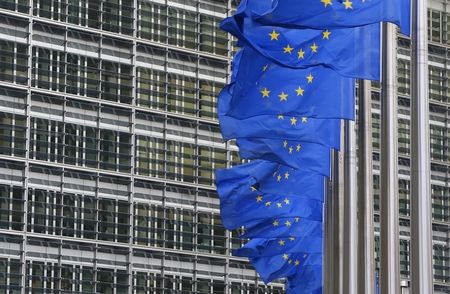LUXEMBOURG (Reuters) - The European Union on Friday moved to close a loophole that has allowed multinational companies to reduce their tax bills by exploiting differences in national tax rules, ending months of negotiations and potentially boosting EU states' tax revenues.
Corporate tax avoidance has become a hot issue in industrialised nations. Campaigners have drawn support from public anger at companies avoiding taxes at a time of austerity.
"The aim is to close a loophole that currently allows corporate groups to exploit mismatches between national tax rules so as to avoid paying taxes on some types of profits distributed within the group," finance ministers said in a statement.
The change in the so-called parent-subsidiary directive addresses "hybrid loan arrangements", a combination of equity and debt often used as a tax-planning tool.
Some member states classify profits from such tools as a tax-deductible debt; others do not. That has prompted some multinational companies to open subsidiaries in other member states so they pay little or no tax.
All EU tax law requires unanimity among member states, and getting all states on board has been an uphill struggle. Europe has been torn between the demands of small countries fiercely resisting change to low-tax regimes that attract foreign investment, and others wary of driving away big employers.

Earlier this month, the European Commission increased pressure on Ireland, the Netherlands and Luxembourg over their corporate tax practices, saying it would investigate deals they cut with Apple (O:AAPL), Starbucks (O:SBUX) and Fiat (MI:FIA).
Member states will have until the end of 2015 to turn the change into national law.
(Reporting by Annika Breidthardt; Editing by Larry King)
